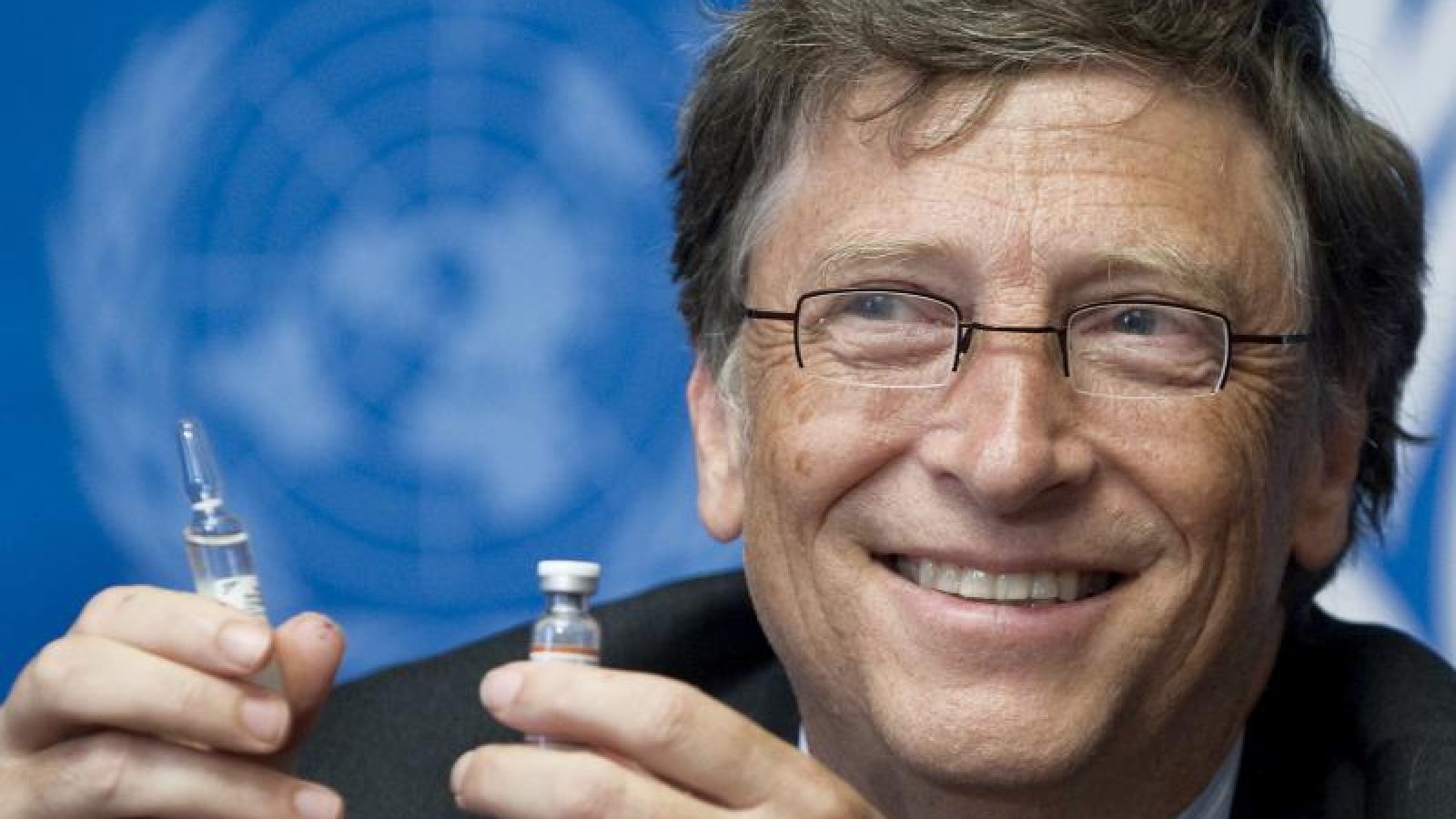Bill Gates is funding the development of another experimental shot.
The Bill & Melinda Gates Foundation and Wellcome Trust announced Wednesday plans to fund late-stage development of a tuberculosis vaccine candidate.
“Wellcome and the Bill & Melinda Gates Foundation today announced funding to advance a tuberculosis (TB) vaccine candidate, M72/AS01E (M72), through a Phase III clinical trial,” a press release stated.
“If proven effective, M72 could potentially become the first new vaccine to help prevent pulmonary TB, a form of active TB, in more than 100 years.”
The Bill & Melinda Gates Foundation will pump $400 million into the vaccine candidate’s Phase III clinical trial.
Wellcome Trust will provide $150 million.
The trial will enroll approximately 26,000 people, including people living with HIV and without TB infection, at more than 50 trial sites in Africa and Southeast Asia.
https://twitter.com/backtolife_2023/status/1675797048048713729
The M72 vaccine candidate has been in development since the early 2000s.
GSK (formerly GlaxoSmithKline) developed the vaccine, but the Bill & Melinda Gates Medical Research Institute (the Gates MRI) is the current license holder for M72 in low- and middle-income countries with high TB burden.
https://twitter.com/BernieSpofforth/status/1675833031238590465
From the Bill & Melinda Gates Foundation:
The Phase III clinical trial to assess the candidate vaccine’s efficacy at preventing progression from latent TB infection to pulmonary TB will be sponsored by the Bill & Melinda Gates Medical Research Institute (the Gates MRI), a nonprofit organization and subsidiary of the Gates Foundation dedicated to the development and effective use of novel biomedical interventions to address substantial global health concerns. Conducted in collaboration with an international consortium of TB clinical investigators, the trial will enroll approximately 26,000 people, including people living with HIV and without TB infection, at more than 50 trial sites in Africa and Southeast Asia. Additional details about the trial design and participants will be announced by the Gates MRI in the coming months. The Gates MRI is the license holder for M72 in low- and middle-income countries with high TB burden.
The M72 vaccine candidate, one of 17 TB vaccine candidates currently in the pipeline, has been in development since the early 2000s. It was developed by GSK up to the proof-of-concept phase (Phase IIb), in partnership with Aeras and the International AIDS Vaccine Initiative (IAVI), and was funded in part by the Gates Foundation. In the Phase IIb trial, M72 showed approximately 50% efficacy in reducing pulmonary TB in adults with latent TB infection—an unprecedented result in decades of TB vaccine research.
WHO Director-General Dr. Tedros Adhanom Ghebreyesus said the support by the Gates Foundation and Wellcome to develop a new TB vaccine, and the opportunity of September’s UN high-level meeting on TB, shows the world can turn the tide on the TB crisis through sustained political and financial action. “The tuberculosis crisis demands a new vaccine to reduce disease transmission and avoidable death, especially targeting adults and adolescents who carry at least 90% of the TB epidemic’s burden,” said Dr. Tedros. “WHO welcomes the commitments from the Bill & Melinda Gates Foundation and Wellcome to take forward development of this vaccine candidate, and WHO will keep supporting vaccine development and access more broadly through its TB Vaccine Accelerator Council.”
Brian Hooker, Ph.D., P.E., senior director of science and research for Children’s Health Defense, shared his concerns about the TB vaccine clinical trial with The Defender.
“I’m concerned that they’re planning on conducting the trial in underdeveloped nations,” Hooker said. “It seems almost prototypical that the underserved have to be guinea pigs for the rest of the world.”
He added, “Fifty percent is incredibly low efficacy for such an ‘important’ intervention to go to essentially everyone in the developing world.”
ADVERTISEMENTTB more common among poor
GSK developed the vaccine and ran smaller, “proof-of-concept” phase 2b trials on it in 2018, reporting a 54% efficacy rate. But the vaccine maker didn’t move forward with the large-scale trials needed for a license.
Instead, it passed the license to the Gates Medical Research Institute, a nonprofit biotech spinoff of the Gates Foundation dedicated to developing “novel biomedical interventions” to treat global health problems.
The existing vaccine for TB, the BCG (bacille Calmette-Guérin) vaccine, was developed in 1921 and is effective at stopping TB infection among children but has limited efficacy in adults.
Recent estimates suggest up to 25% of the global population carries a latent (asymptomatic) TB infection, which may later become active among 5-15% of latent carriers. People with latent infection cannot spread the disease.
TB kills 1.6 million people per year, primarily in low and middle-income countries. It is treatable and curable with antibiotics. Drug-resistant strains have emerged, but those also are treatable and curable using second-line drugs.
TB is more common among poor people, who are more likely to work in poorly ventilated and overcrowded conditions, suffer from malnutrition and have more limited access to healthcare.
The funded trial will test whether the experimental vaccine can prevent adolescents and adults with latent tuberculosis from developing symptoms.
ADVERTISEMENT



Join the conversation!
Please share your thoughts about this article below. We value your opinions, and would love to see you add to the discussion!